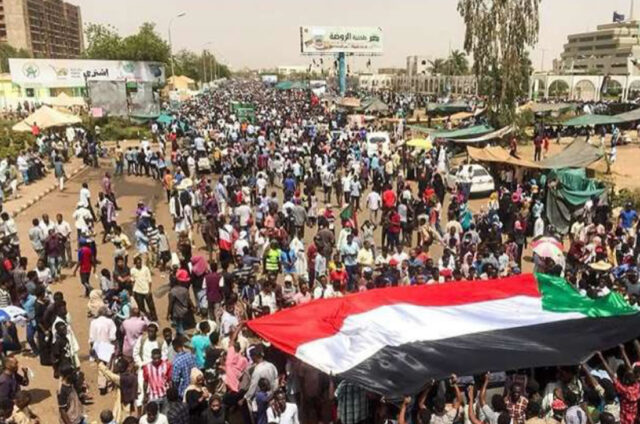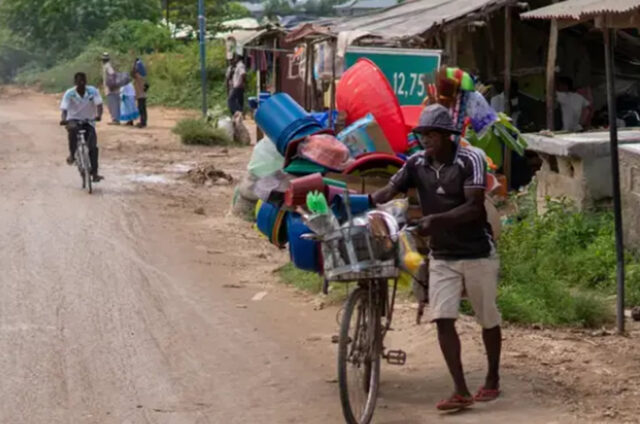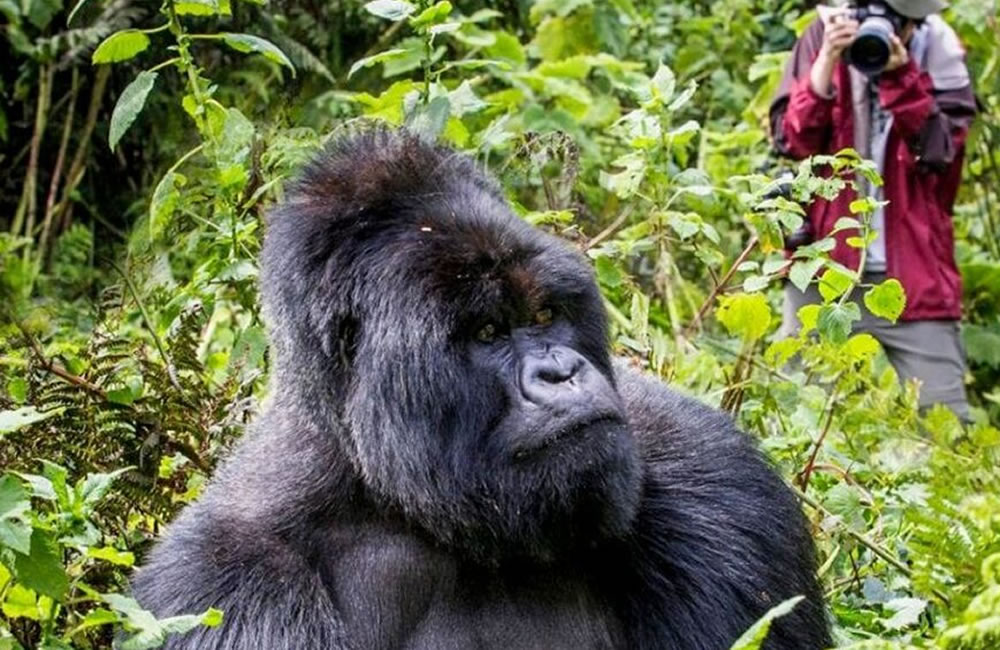Yesterday the senior military leadership in Sudan arrested the prime minister and seized control of the country in what is already — for the citizens at least — a bloody takeover coup.
It represents the end of a power-sharing relationship between civilian and the military in the African nation which has lasted for over two years.
It will also mean the return to authoritarian rule – for a while at least — after the people forced out the former dictator Omar Hassan al-Bashir in 2019.
Though the news came as a shock for the world, the overthrow looked more likely last month, after a previous coup attempt failed.
Since that time both the civilian as well as military sides were shoring up their alliances. Last week several cabinet ministers led protests in Khartoum and other major metropolitan areas, against even the prospect of a coup. In parallel, the army strengthened its hand by bringing together an odd alliance of leaders consisting of local warlords, heads of militia, those who still backed previous dictator al-Bashir, and the current military establishment.
The coup took place relatively swiftly and reportedly relatively quietly. The military, headed by General Abdel Fattah al-Burhan arrested Prime Minister Abdalla Hamdok, industry minister Ibrahim al-Sheikh, several other ministers, Governor Ayman Khalid of the state which includes the capital of Khartoum, and other officials within the government. No one seriously injured or killed as those officials were taken, according to current reports.
In doing so, the military dissolved the “sovereign council” which managed a power-sharing arrangement between the civilian leadership represented by Hamdok and the general’s senior team. That council was formed in 2019 after former military officer Omar Hassan al-Bashir himself had led the country for three decades.
Al-Bashir himself took power in 1989 when, as a brigadier general in the Sudanese army, he also led a military coup. In a disturbing replay of history, al-Bashir seized power by kicking out the democratically elected government headed up by then prime Minster Sadiq al-Mahd.
News of the coup spread quickly in the nation. Fearing a return to a dictator state run by a military team, protesters came out by the thousands in the country’s capital city of Khartoum to demand the return of Prime Minister Hamdok to power.
Those protesters were also aware that the sovereign council was supposed to have turned the full reigns of leadership of the country to a civilian within just a few months. The coup was broadly seen as an attempt to keep that from ever happening.
The military leadership responded in force, with shots fired by security forces deployed to attempt to restore calm. As of late yesterday, reports from the health ministry said at least seven protesters had been killed in the skirmishes. An estimated 140 protesters were wounded.
The government also shut off the internet to the country, as a means to keep protesters from coordinating their efforts.
In statements released yesterday, General Abdel Fatttah al-Burhan said the takeover of the government was unavoidable. He described the sovereign council as unworkable, with the civilian and military representatives constantly arguing over governance decisions.
In a public statement, he attempted to reassure those who felt the military would keep control of what it had seized.
“The armed forces will continue completing the democratic transition and the handover of the country’s leadership to a civilian, elected government,” he said.
The statement also said the constitution would be rewritten to address changes his group felt were needed. Those changes are to include creating a new governmental entity responsible for writing and passing laws.
Rather than achieving its purpose, the general’s statements only served to intensify the protests. Citizens against the coup spread out within both the capital of Khartoum and its sister city of Omdurman. They blocked streets to keep the security forces out, even as those forces tried to de-escalate matters by using tear gas this time rather than guns to get people to leave.
“The people are stronger, stronger,” the protesters chanted back at them in defiance. “Retreat is not an option!”
As the tear gas appeared to be failing to stop the protests, the security forces apparently once again returned to firing into the protesters.
Protests are reportedly intensifying close to the military headquarters where the ruling junta is situated.
The coup has been greeted with condemnation from the United Nations, the European Union, the United Kingdom, and the United States. The return to instability in a country which under al-Bashir was ravaged and ransacked by its leadership is considered a threat once again to peace extending well beyond the borders of Sudan.
Josep Borrell, foreign affairs head for the EU, said the European bloc had “utmost concern” about what had happened.
Speaking for the Biden-Harris administration, Jerry Feltman, U.S. special envoy for the Horn of Africa, said the White House was “deeply alarmed at reports of a military takeover of the transitional government.”
Soon after Feltman’s remarks, Karine Jean-Pierre, a spokeswoman for Joe Biden, issued a more explicit message about the seizure of the government.
“We reject the actions by the military and call for the immediate release of the prime minister and others who have been placed under house arrest,” she said in a meeting with reporters.
The U.S. has also responded to the military coup by suspending the $700 million it was planning to send to Sudan. It was at least in part intended to support the transition to a full democratic state.
An open election for the new government was also originally intended to happen in 2023. Even though the new military in its statement says that will still happen, most experts on the situation say the current situation is far too volatile to be certain of what will happen.
Meanwhile the largest party in the country, Umma, said there was little choice but to take the streets and continue protests.
The Sudanese Professionals Association (SPA), the largest of the nation’s pro-democratic political groups, also made a strong call to the people to rise up to reject the military takeover.
“We urge the masses to go out on the streets and occupy them, close all roads with barricades, stage a general labor strike, and not to cooperate with the putschists and use civil disobedience to confront them,” the SPA said in a social media post yesterday.














